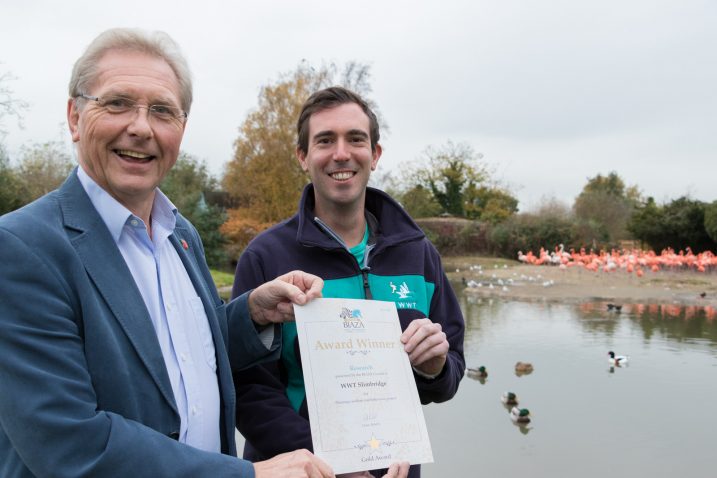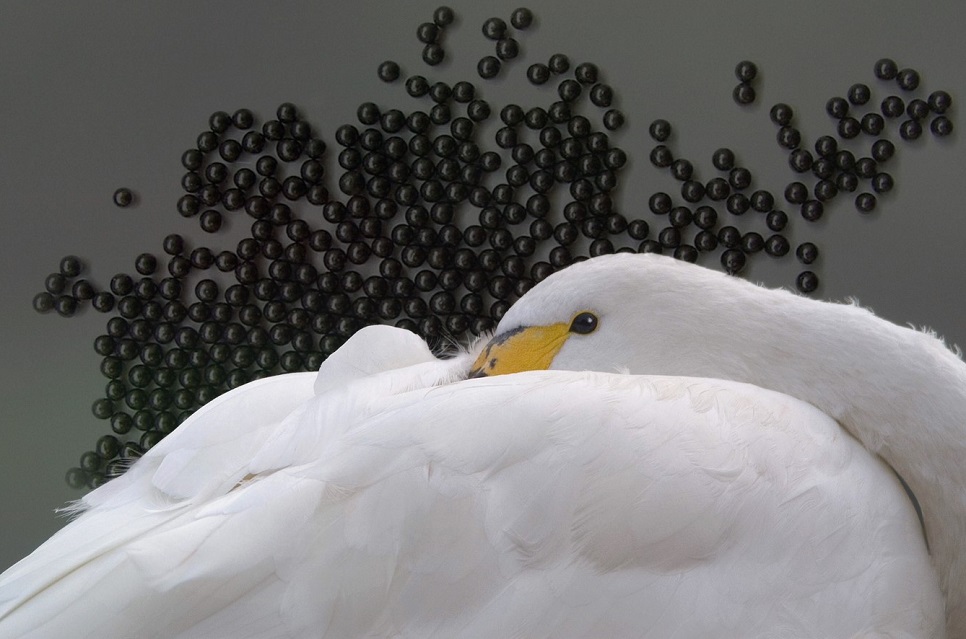Flamingo research strikes gold for WWT
WWT Slimbridge has received its official certificate after striking gold in the annual BIAZA awards, taking the honours for best zoo research project in the UK.

WWT Chief Executive Martin Spray yesterday (Wednesday, 8 Nov) presented the official certificate to PhD researcher Paul Rose, who heads the long-term flamingo project involving flocks at all of the WWT centres. The award recognises Paul’s work for its relevance to flamingo welfare and its importance in furthering our understanding of the birds’ biology and behaviour.
Paul said:
I’m just very chuffed that the collection birds at WWT have been recognised as being so incredibly useful for science and research. This is in no small way due to the excellent care they receive from the aviculturists; it really highlights the importance of our managed populations to animal behaviour and animal welfare science.
He added:
We have used novel methods to investigate flamingo behaviour here at WWT and, in conjunction with leading researchers at the University of Exeter, have forged a partnership that has helped generate much useful data on how WWT's flocks live out their daily lives. This certificate is fitting recognition of all who put in the hard work caring for WWT’s flamingos, that makes them such excellent subjects for scientific research.
WWT Chief Executive Martin Spray said:
The Trust was founded 70 years ago with core elements including scientific research, conservation and education, so it’s fitting that this ongoing research project has been recognised in our 70th anniversary year. Congratulations to Paul on his ground-breaking work, and to all involved in the care of our flocks; we look forward to further success as the research programme continues.

